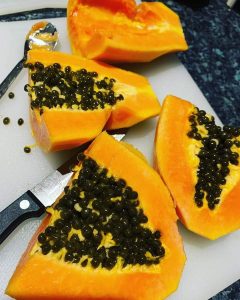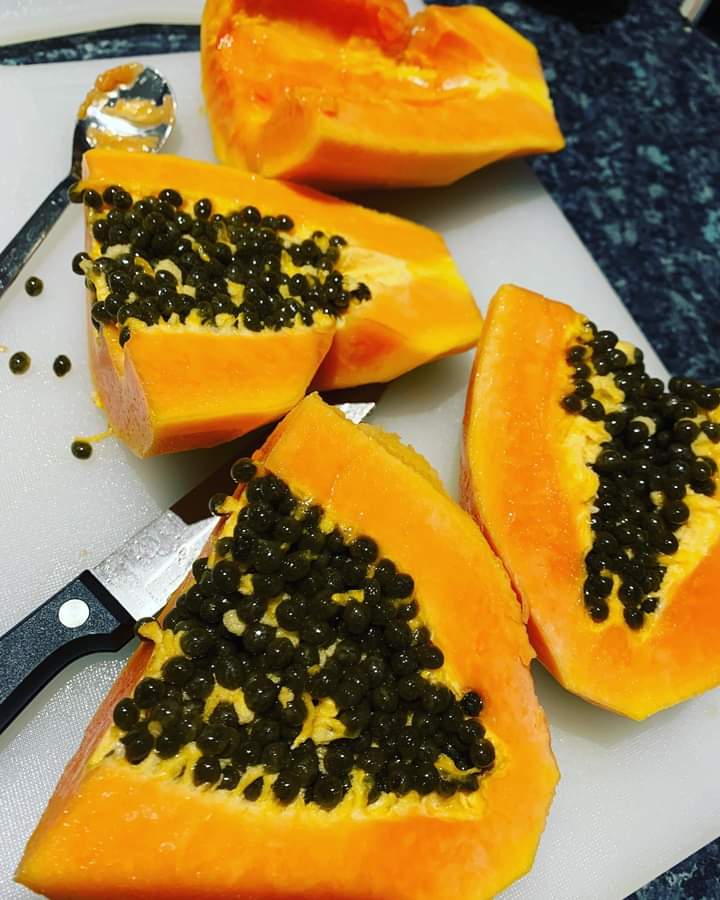See the list of High fibre foods in Ghana… Ghanaian fibre diets.
Fibres keep your digestive system healthy by making foods pass smoothly through the digestive tract. Fibre-rich foods are highly recommended to sustain a healthy diet. So what should you eat to ensure you get the necessary amount of fibres you need?
There are two types of fibre, soluble and insoluble – your body needs both, many foods contain both.
Fibre helps to keep our digestive system healthy and helps to prevent constipation.
The European Food Safety Authority suggests that including fibre rich foods in a healthy balanced diet can improve weight maintenance.
Insoluble fibre helps to regulate the correct pH in the intestines, encourages peristalsis and binds, transports and eliminates toxins and waste in the bowel over a faster time period.
Soluble fibre supports the growth of beneficial bacteria in the bowel which helps to strengthen immunity and improve digestion.
It is recommended that adults eat around 30g of fibre per day.
Getting your daily Fibre requirements in Ghana:-
Breakfast
Bowl of porridge oats, with some added nuts and berries – 9g
Lunch
Salad with seeds, spinach, tomato and cucumber, apple with skin and avocado – 15g
Evening meal
Vegetable stir fry with kale, carrots, bean sprouts, broccoli and brown rice – 14g
Snacks high in Fibre
Medium Pear with skin – 5.5g
Medium Apple with skin – 5.1g
1/2 Avacado – 6.7g
1 slice Wholewheat bread 2.2g
1/2 cup brown rice 2g
Increasing our fibre intake
Add seeds, nuts fruit and berries to your morning cereal
Sprinkle salads with nuts and seeds or cooked lentils
Have a few meat-free days and eat vegetable-based meals ( not met substitute) instead. chillis, Vegatable curries.
DID YOU KNOW?
Fibre slows down the release of energy, thereby keeping you fuller for longer and helps you balance your blood sugar.
Most foods contain both insoluble and soluble fibre but are usually higher in one type than the other. Both are neccessary for good digestive function.
Dietary fiber increases the weight and size of your stool and softens it. A bulky stool is easier to pass, decreasing your chance of constipation. If you have loose, watery stools, fiber may help to solidify the stool because it absorbs water and adds bulk to stool, thereby maintaining bowel health.
As someone who has suffered from inflammatory bowel syndrome (IBS), I know from personal experience that those suffering from digestive issues often avoid taking fibre as it can exacerbate their syptoms.
However, in order to support your gut healing journey, fibre is essential even in IBS. You may find that working with a professional can help you find the right balance for you.

Constipation is not normal and can have a detrimental effect not only on your physical but emotional health as well. 💫
Here are some examples of Ghanaian foods or diet rich fibre.
Kenkey
Waakye
Beans
Fruits like pawpaw, African star apple
Vegetables
Yam
Pinto beans
Navy Beans
Oranges
Mango
Whole grains
Fruit such as berries, pears, melon, and oranges.
Vegetables such as broccoli, carrots, and sweetcorn.
Peas and pulses.
Nuts and seeds.
Corn
Popcorn is very Rich in fibre, Ghanaian should eat more of it.
Bread
Brown rice
Tomatoes.
Potatoes
Apples, bananas, oranges, strawberries all have around 3 to 4 grams of fiber….eat the peels of these fruits as that is where the fibre truly is.
This article is the intellectual property of www.nimedhealth.com.ng





















